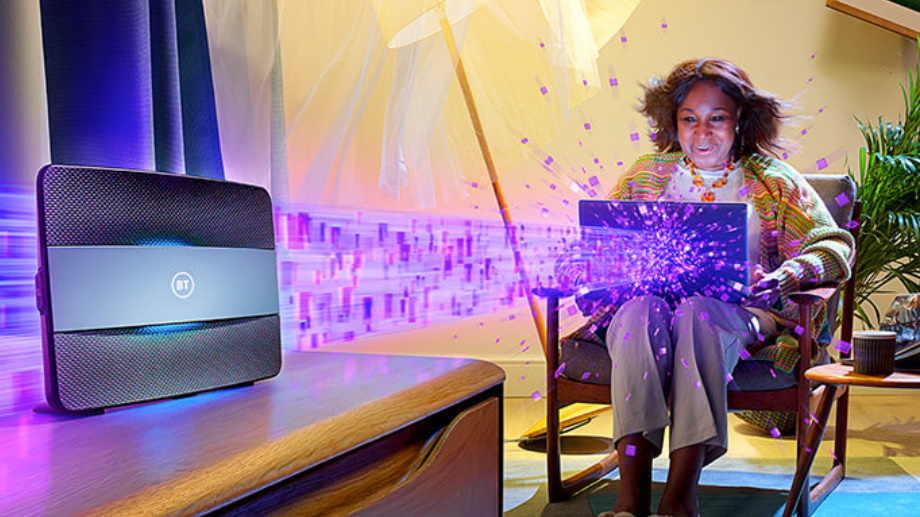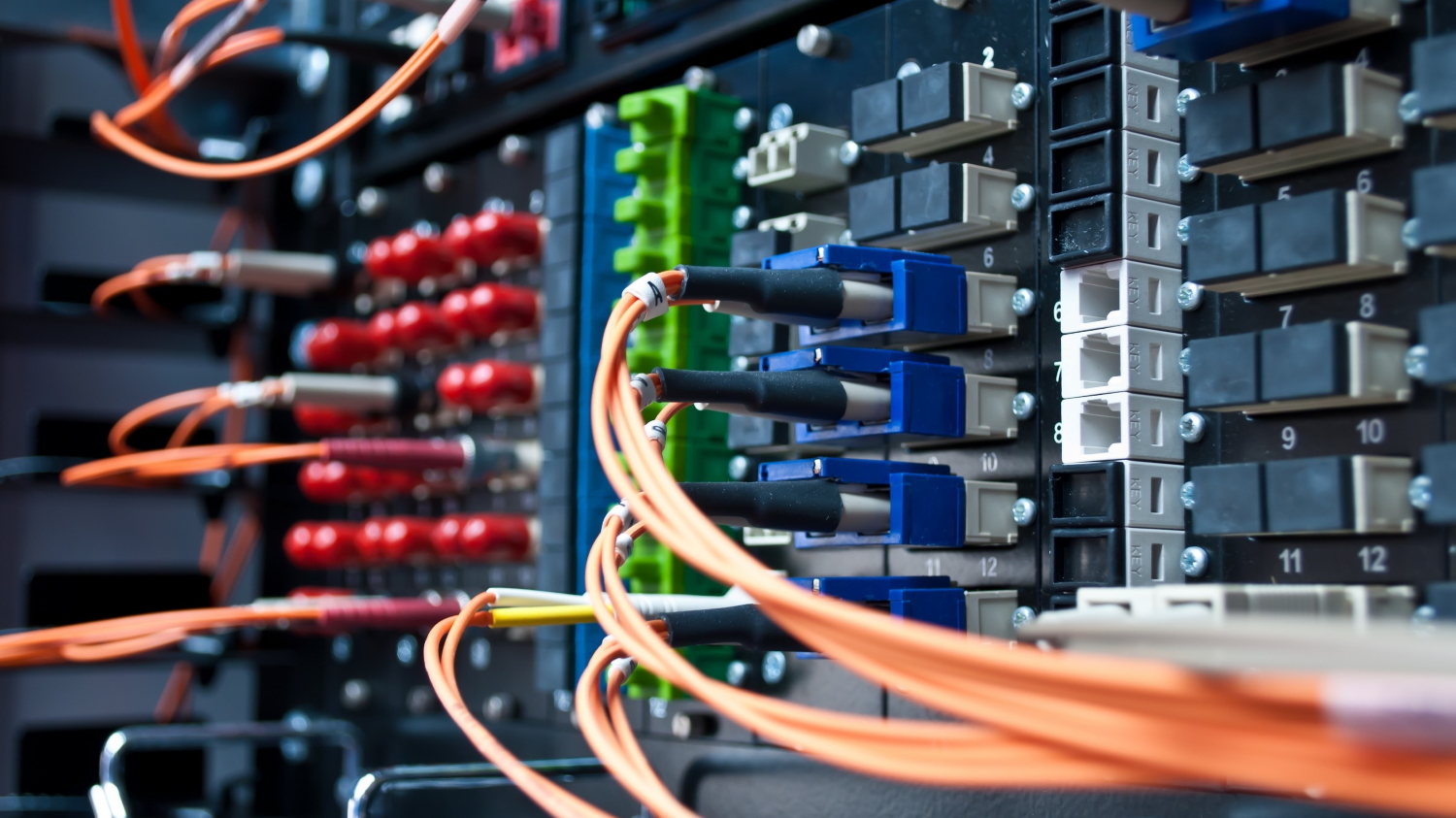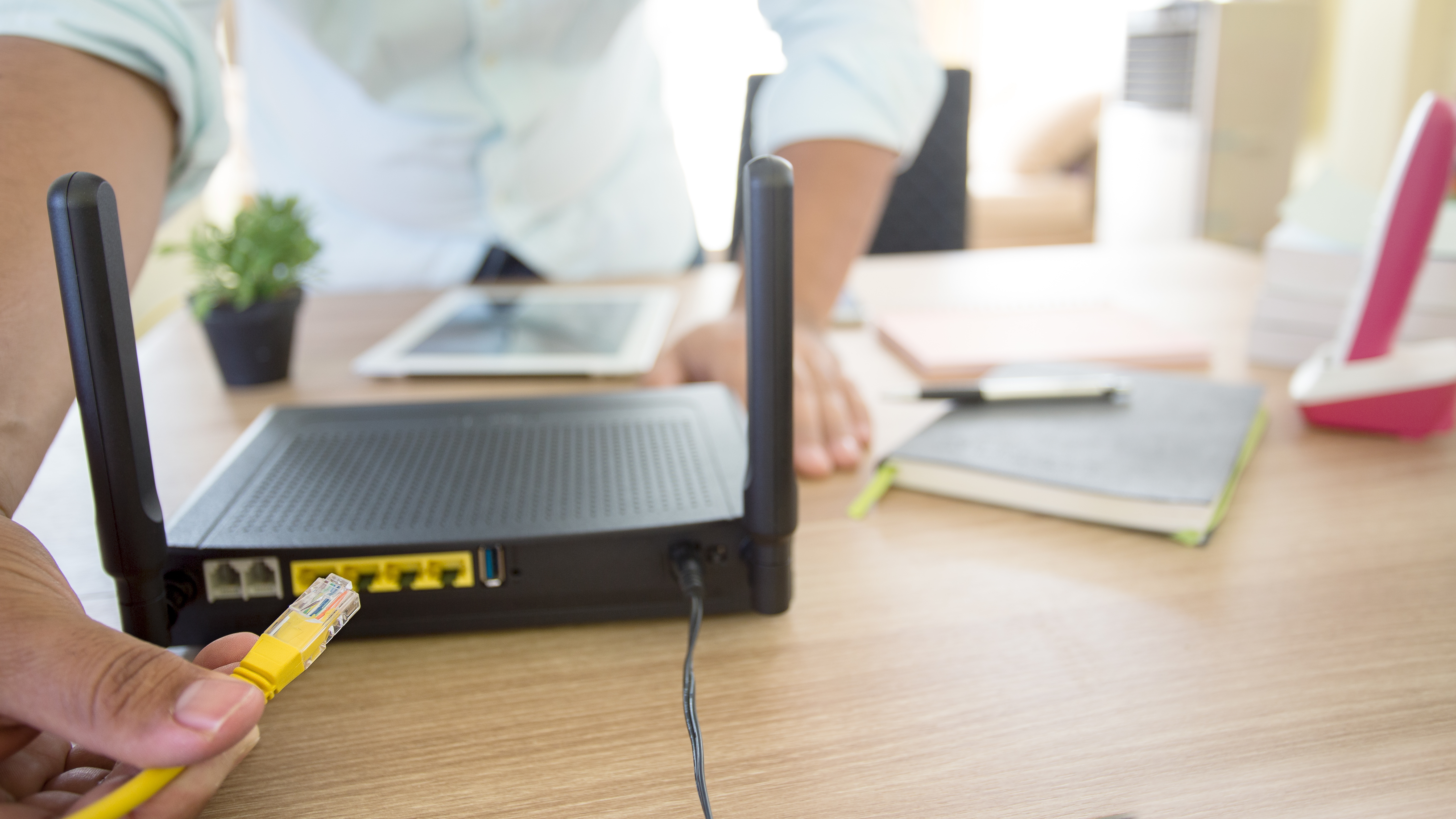What is broadband and how does it work?
What is broadband, gets explained right here with everything you need to know

Sign up for breaking news, reviews, opinion, top tech deals, and more.
You are now subscribed
Your newsletter sign-up was successful
What is broadband? It's a good question to ask if you have any interest in making sure you have a decent internet connection. This is because broadband is the best way to get fast speeds to your property.
If you want to know more about specific deals then check out our broadband deals guide. But if it's more clarity on what broadband is and how it works, you're in the right place.
Chances are you already use broadband on a daily basis, but using it and understanding how it works are two very different things. It can pay to know, quite literally. Since there are different broadband types you can best judge the ideal one for your needs so when it comes to upgrade you pick the ideal setup.
What is broadband and how does it work?
Broadband is a high-speed internet connection. This is typically either a copper phone line connection or a fibre optic cable.
But there are over-the-air options which include 3G, 4G and 5G connections which are fast enough to also be classed as broadband.
Another much rarer option is satellite broadband which, you guessed it, sends the signal via satellite.
In all cases data is being condensed into a basic format at one end and sent to you at the other end to be effectively unlocked by your device and displayed as whatever is needed. This is why a router is needed as part of that unpacking processes when it's received at your end.
Sign up for breaking news, reviews, opinion, top tech deals, and more.
An Internet Service Provider (ISP) will be responsible for facilitating your connection to the web via whatever hardware works for you. This will either have its own hardware infrastructure – like Virgin Media with its fibre optic cabling – or it will rent that from a provider such as BT.
Whichever you go for you'll likely have a router provided and installed as part of the service to get you connected.

What types of broadband are there?
The fastest broadband option is fibre broadband which uses light transmitting cables which means, theoretically, there is no limit to how much data the cables can carry.
Other options include ADSL, which is sent over copper cables, meaning there is an upper limit as physical resistance to the electric current moving along metal.
Over the air options like 3G, 4G, 5G are sent using radio waves which mean you'll need to have a good reception in your area to get the best results. Satellite signals are sent at lightspeed with direct line of sight, using a dish that attaches to your property.
If you're going for the fibre option then you'll need to be aware this breaks down into two types: Fibre To The Cabinet (FTTC) and Fibre To The Property (FTTP). Catchy names, indeed. FTTC sends the signal along a beefy cable to the cabinet, a box near a set of properties, where it is then bottle-necked into a metal cable to your home. As you'd imagine this limits the speed in that last distance. FTTP, avoids this by running that larger capacity fibre cable right to your router.
FTTP is faster as well as more future-proofed as you can always upgrade your router if needs be and get faster and faster connections over that same cable.

What speeds do you get with broadband?
Broadband speeds vary massively from a simple 2Mb ADSL line right up to a 1Gbps fibre connection. What denotes which you get is where you're located and what you're prepared to pay.
A good place to start is with a coverage checker. Pop into our broadband deals article to use the checker in there to see what's available where you are.
Speeds break down into four sections:
0-12Mb
This is for ADSL lines, usually, and will be enough for simple use with few people. But if you want to start streaming you're going to need to look for faster speeds.
25-50Mb
This is what fibre broadband will get you, from several providers and is generally the FTTC option. This should cover you from streaming and gaming but for smaller households.
50-100Mb
This high-end speed fibre broadband is ideal for properties with several users that want 4K streaming, gaming, smart home devices and browsing all to work smoothly at once.
100Mb-1Gb
This end of the broadband spectrum is classed as ultra fast and will use FTTP deliver speeds of up to 1Gb, or specifically 1,130Mb in the case of Virgin Media. This is for small businesses, those that work from home and anyone that wants lots of streams of UHD data at once.

Who offers broadband and how do you get it?
Broadband comes from a lot of providers now but the two major hardware owners are Virgin Media and BT. These both own and maintain their own cabling infrastructure so most other providers will be offering a service rented on these lines.
The fastest option is Virgin Media with lines up to 1,130Mb, but this is also one of the more expensive options. BT, Vodafone and Sky also provide ultra fast broadband options.
There are also options, with affordable choices, from TalkTalk, Plusnet, EE and Shell Energy. All are easy to sign-up with and often offer deals, especially if you're using or plan to use a phone line provider with more services than just broadband.
To get broadband you can either go directly to the supplier, or you can get it as part of broadband and TV deals. Once you've established that type of broadband is available in your area it's worth checking the latest broadband deals to make sure you're committing to the best option at that time.

Are there any alternatives to broadband?
As mentioned there is also 3G, 4G and 5G broadband. The most common of these right now is 4G home broadband. This is a great option for anyone that doesn't have fibre optic cabling in their area but still wants to get a high-speed data connection.
The 4G broadband option will either install a box outside your home to receive signal and then a router inside to send that as WiFi or simply, a router with a SIM card in it. This is different to another option called mobile broadband. This uses a receiver which is also the router, taking in the signal and sending out WiFi to your devices – this, as the name suggests, is not fixed but rather is battery powered so you can take it anywhere with you.
For anyone that is also out of range of the 4G services it could be worth looking into satellite broadband.
Luke is a freelance writer and editor with over two decades of experience covering tech, science and health. Among many others he writes across Future titles covering health tech, software and apps, VPNs, TV, audio, smart home, antivirus, broadband, smartphones, cars and plenty more. He also likes to climb mountains, swim outside and contort his body into silly positions while breathing as calmly as possible.
